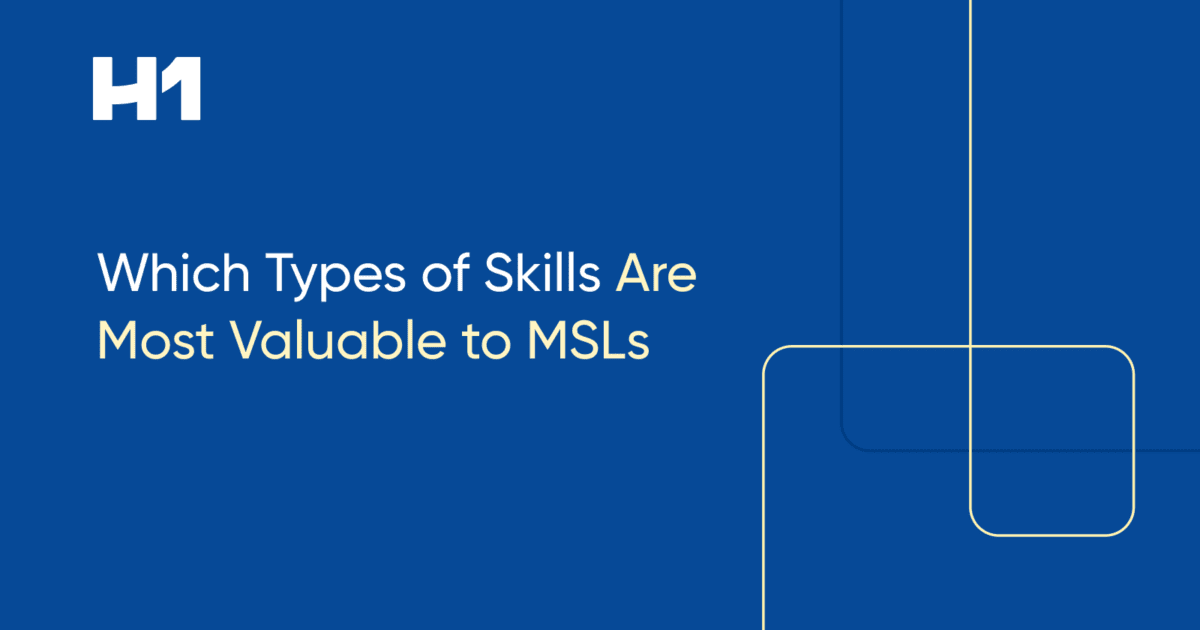Which Types of Skills Are Most Valuable to MSLs

Medical Science Liaison – Science Meets Communication Skills
Medical Science Liaisons (MSL) are science subject matter experts first and foremost. They educate physicians about their drugs, the underlying science, and details of clinical studies. In addition, they need to be ready to competently address any question a healthcare provider may have.
It does not come as a great surprise then, that MSLs generally have advanced degrees. Doctorates in medicine (MD) or a life sciences field with a human-health focus (PhD) are common and so are doctorates in pharmacy (PharmD). A majority of MSLs actually have multiple degrees.
While being a science superstar is required for a successful career as an MSL, it is not enough. In this job as the main conduit of interaction between the pharmaceutical company and healthcare providers, you need to match scientific knowledge with soft skills to truly be successful.
While there are a number of soft skills MSLs benefit from, one is truly indispensable: communication.
Communication Is an MSL Core Skill
That communication is important doesn’t exactly come as a surprise. Hardly any job description these days will not highlight the need for “excellent communication skills”. In the case of MSLs, however, communication skills are not simply nice to have, they are critical.
As an MSL you need to constantly communicate with different stakeholders both internally, e.g. with sales, marketing, the in-house scientific and clinical teams, and the CRO, as well as externally. External communication, e.g. with healthcare providers (HCPs), payers, KOLs and other experts, is what MSLs do every day.
Presentation skills are also crucial. All the information in an MSL’s head needs to be communicated in a structured way. One of the most important elements in communicating is knowing whom to tell how much and when. HCPs have different needs at different times. Not every topic is equally interesting or pertinent for every HCP, and even those deeply interested in what you have to say might have a particularly hectic day leaving less time for details. Learning to effectively communicate with an HCP therefore is more than just walking them through a polished presentation. It involves understanding what their needs are, asking them what questions are on their mind, and how much time they have before launching into the data – and then shaping the delivery accordingly.
The Challenge of Communicating Complex Information
This gets us back to structuring the information in a way that an HCP can retain it easily. One of the fundamental mistakes an MSL – or in fact anybody presenting – can make is to cram too much information into too short a period of time. The chance that an HCP, however interested, will retain slide after slide of details is minuscule.
The goal has to be to convey the most important messages and how they are relevant to the HCP – in other words the information you would put into the abstract and the conclusions of a scientific paper or in the executive summary of a report – and make sure those are retained.
A certain level of detailed data is important because it supports those core messages and lends them credibility. The goal is for the HCP to retain the most important information and gain the impression that whatever was presented was well supported. Even if they can’t recall the details a day or a week down the road they will remember that the data was sound.
Too many details can dilute or obscure the important takeaway lessons with the result that the HCP will be unable to retain them for long or worse yet, can’t find them among the numerous details.
Of course, there are people who appreciate and thrive on detailed information, those who will have a follow-on question about a footnote on page 17. The great thing is, as a well-prepared MSL you are ready to deliver the answer. But, you can let them ask that question rather than anticipating and pro-actively answering it.
“If you can’t explain it simply, you don’t understand it well enough.”
~ Albert Einstein
Distilling the most important information, and structuring data so it is easy to understand and retain without compromising accuracy is a lot more difficult and time consuming than simply presenting slide after slide of data. It is worth putting in that time, though, it not only ensures that the core messages stick but also guarantees that you have mastered the data.
Medical Science Liaison is an exciting job for people interested in science but not so much in being a bench scientist. Add a knack for communication and a desire to interact frequently with a variety of different people and you have the perfect combination of skills. Check out the 3 Ways Field Medical Teams Can Engage Experts.

 HCP Universe
HCP Universe Trial Landscape
Trial Landscape